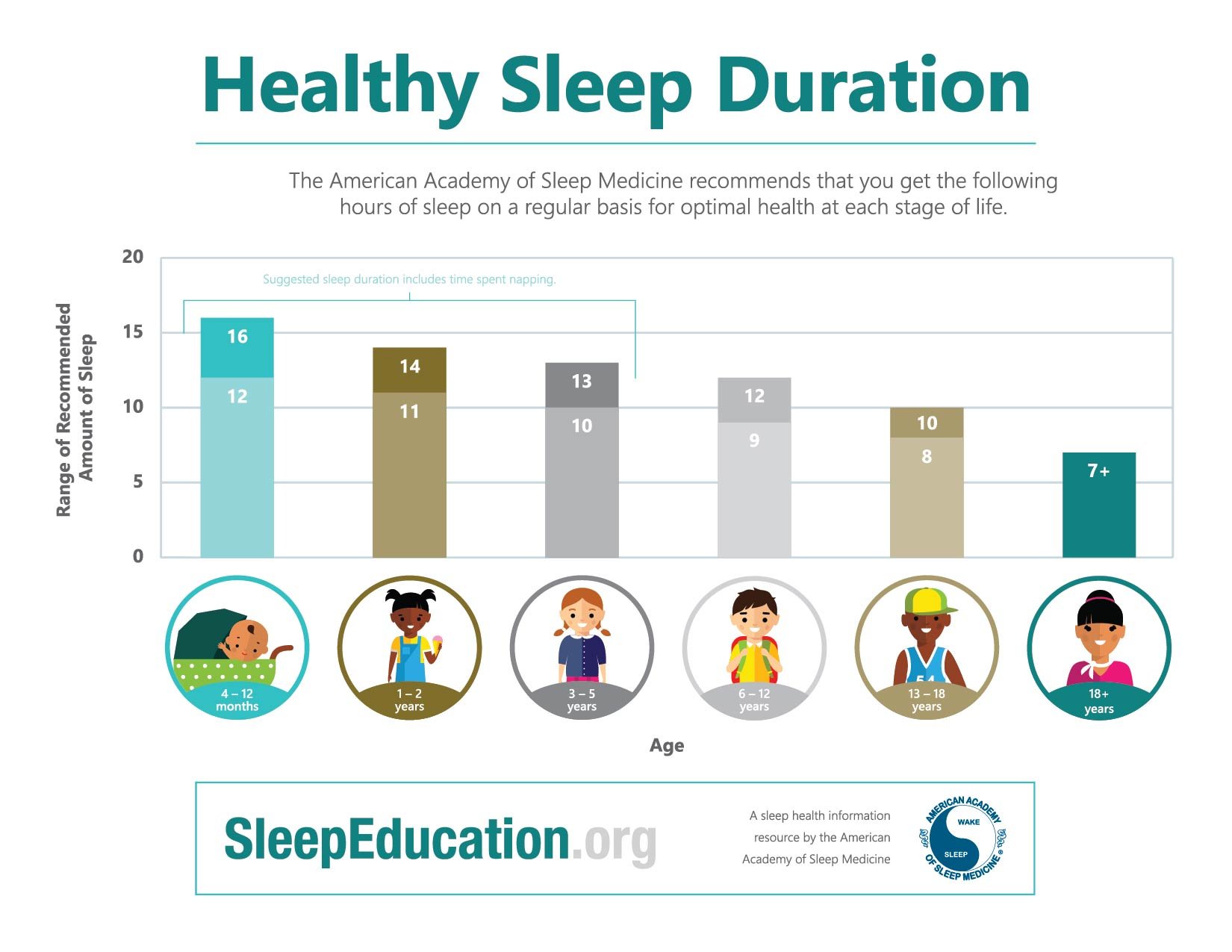Sleep and energy management
Have you ever found yourself 25 minutes into lecture, with your eyelids steadily getting heavier and heavier? It’s warm. It is likely a class that you are not particularly interested in, or one that you have to take as a prerequisite for your program. The teachers voice sounds like white noise in the background?
For many people in college or educational programs, this struggle may happen more often than not. College life take a toll on sleep habits. Between assigned readings, paper to write, schedules to manage, extracurricular activities, etc., getting a lot of sleep is touch to manage, so realistically how is a student supposed to keep from getting a little tired and sleepy in those extraneous classes?
How Much Sleep Do We Need?
Combating daytime sleepiness in class begins by understanding how much sleep a normal individual requires. And how much sleep you need first depends on your age [National Sleep Foundation]:
- <1 year: 12-17 hours per day (more sleep for newborns than toddlers)
- 1-2 years: 11-14 hours
- 3-5 years: 10-13 hours
- 6-13 years: 9-11 hours
- 14-17 years: 8-10 hours
- 18-65 years: 7-9 hours
- 65+: 7-8 hours

Second, how much sleep you need depends on you, specifically based on:
- Your natural, internal needs
- Your external needs depending on lifestyle factors like activity level, diet, etc.
For example, if you are 30 years old, you can count on needing at least 7 hours of sleep. But whereas your friend can function optimally on 7 hours of sleep, you may need 8.5 hours of sleep to feel your best.
In summary: you need at least a certain amount based on your age, and may need additional sleep depending on what makes you function the best.
Take inventory with a sleep journal
A journal is an easy way to keep track of sleep. Write down what time you go to bed. Write down anything unique about your bedtime routine. For example, if you decided to drink a glass or two of wine that night, write it down in your journal. Then, in the morning, write down what time you woke up. Write down how you feel upon waking. Are you feeling energized? Tired? Like you got hit by a bread-truck? Write it down. Then, at the end of the week, look back at your journal and see if there are any patterns that show up.
Lifestyle choices and sleep
Lifestyle is a key factor to consider when talking about sleep. Introducing stimulants like coffee or cigarettes, watching TV late into the night, etc. can really impact your quality and quantity of sleep. Any of the following lifestyle choices will hurt your chances at getting a full night’s rest:
- Drinking too much coffee throughout the day
- Drinking coffee to late in the day
- Drinking alcohol before bed
- Using electronics and screens before bed (blue light inhibits sleep)
- Foregoing sleep in order to play video games, party, etc.
- Keeping a loud, messy, or lit room
- Skimping on good sheets, pillows, or mattress
Create an IDEAL sleep environment
Before bed tonight, take a look at your room. What emotions or perceptions do you get when you glance at your sleep environment? Is your room messy with clothes on the floor? How does it smell? Are there lights from the window? Just take a moment to observe your room, and if there are any aspects that don’t lend themselves to quality sleep, then take note and change them. Your room should be cool, dark, quiet, and clean before going to sleep.
In-class techniques, if you are sleepy…
If you're sitting in class and you are about to fall asleep, here some tips that can help thwart sleep:
- Try holding your breath, or quietly altering your breathing pattern. By altering your breathing pattern you alter your heart rate and your body’s physiology, which can provide a nice break to the sleepiness that you feel falling over you.
- Pinch the muscle-space between the thumb and first finger. This area is called the thenar group, and it holds many nerves. By pinching this spot, it can bring you into a different mental and physiological state, which can produce a needed boost in energy and focus when you need it.
- Play with a fidget. A fidget spinner, a paperclip, a pair of dice, a lucky rabbit’s foot. Anything that helps you focus on what is in your hands, rather than focusing on the feeling of getting sleepy.
- Drink COLD water. Drinking glass of cold water, or exposure to cold in general, increases sympathetic nervous system arousal which will give you more energy.
If you are a student, struggling to get a good night's sleep, there may be something else at play. Please click the orange button below to take a free online sleep test and talk with one of our sleep health professionals.


